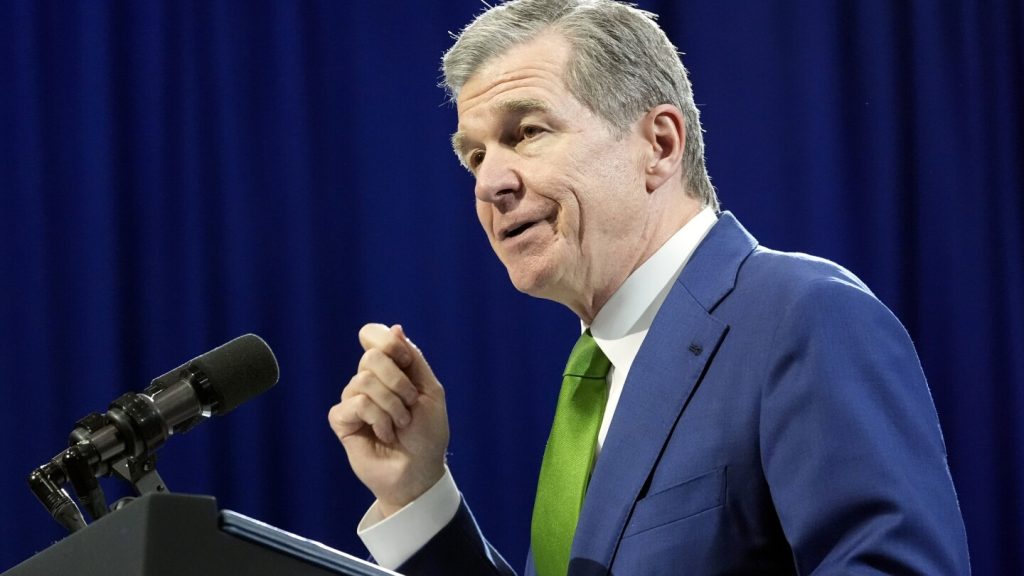Cooper’s decision to veto the transportation bill sparked controversy among lawmakers and stakeholders in North Carolina. The bill, which contains various changes to transportation laws, faced criticism for a provision that would expand the area where billboard owners can cut down vegetation along roadways. This provision, which would allow for the removal of redbud trees, a protected species that supports various ecological functions, was a major point of concern for environmental advocates. The bill had gone through a year of negotiations and received support from some House Democrats, but ultimately Cooper vetoed it, citing concerns about its impact on the state’s natural beauty.
Despite Governor Cooper’s veto, the bill still has a chance to become law as it returns to the General Assembly, where GOP lawmakers hold narrow veto-proof majorities in both chambers. Senate Republicans have already expressed their intent to override Cooper’s veto, as they did with all 19 of his vetoes from the previous year. This sets the stage for a potential showdown between the governor and the legislature over the bill, with its controversial provision regarding billboard rule changes at the center of the debate. The bill’s passage could have far-reaching implications for the state’s environment and transportation infrastructure.
The veto of the transportation bill by Governor Cooper highlights the ongoing political tensions between Democrats and Republicans in North Carolina. By blocking the bill, Cooper has taken a stand to protect the state’s natural beauty and ecosystem, even as lawmakers and stakeholders push for its passage. The bill’s inclusion of provisions that would allow for the removal of protected tree species has sparked concern among environmental advocates, who see it as a threat to important ecological functions such as carbon sequestration and wildlife habitat. The decision to veto the bill sets the stage for a potential showdown in the General Assembly as Republicans may seek to override the governor’s veto.
The controversy surrounding the transportation bill reflects broader debates over environmental conservation and development in North Carolina. The clash between efforts to protect the state’s natural beauty and the push for infrastructure improvements underscores the complex challenges facing policymakers in balancing competing interests. As the bill moves back to the General Assembly for a potential override vote, the outcome will likely have significant implications for the state’s landscape and natural resources. Advocates on both sides are gearing up for a showdown over the bill, with environmental concerns at the forefront of the debate.
The involvement of a wide range of stakeholders in the negotiations over the transportation bill demonstrates the complexity of the issues at hand. From environmental advocates to lawmakers to transportation officials, each group has a vested interest in the outcome of the bill. The decision to expand the area where billboard owners can cut down vegetation along roadways has raised concerns about the potential impact on the state’s ecosystem and wildlife habitat. As the debate intensifies, the future of the bill hangs in the balance, with the governor’s veto setting the stage for a contentious showdown in the General Assembly.
Ultimately, the fate of the transportation bill in North Carolina remains uncertain as lawmakers prepare to potentially override Governor Cooper’s veto. The bill’s controversial provision regarding billboard rule changes has sparked a heated debate among stakeholders and policymakers, with environmental concerns taking center stage. As the state grapples with competing priorities around transportation infrastructure and natural conservation, the outcome of the bill’s legislative journey will have lasting implications for North Carolina’s environment and landscape. The clash between Democrats and Republicans over the bill underscores the challenges of finding common ground on issues that impact the state’s ecology and development.


